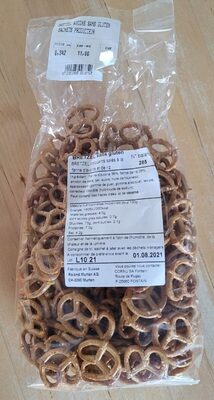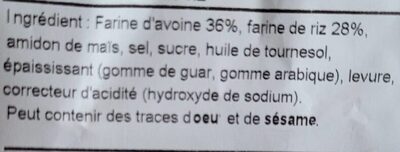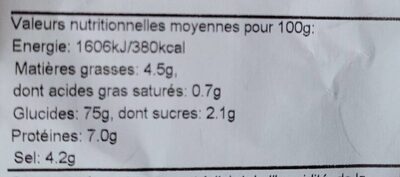Bretzel avoine sans gluten - Cornu - 342 g
This product page is not complete. You can help to complete it by editing it and adding more data from the photos we have, or by taking more photos using the app for Android or iPhone/iPad. Thank you!
×
Barcode: 0200285003752 (EAN / EAN-13) 200285003752 (UPC / UPC-A)
Common name: Bretzel croquants salés à la farine d'avoine et de riz
Quantity: 342 g
Packaging: fr:Sachet plastique
Brands: Cornu
Categories: Plant-based foods and beverages, Plant-based foods, Snacks, Cereals and potatoes, Salty snacks, Appetizers, Breads, Crackers, Special breads, Pretzel
Labels, certifications, awards: No gluten, Made in Swiss
Manufacturing or processing places: Switzerland
Countries where sold: Switzerland
Matching with your preferences
Environment
Carbon footprint
Packaging
Transportation
Report a problem
Data sources
Product added on by kiliweb
Last edit of product page on by ecoscore-impact-estimator.
Product page also edited by openfoodfacts-contributors, packbot, torredibabele, yuka.sY2b0xO6T85zoF3NwEKvlhxOUPCHrRvtEwHumBak5PCvJ7vGOONyxKn_bao.











